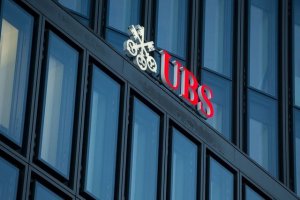- Banking Litigation
- Dispute Resolution

Shorter Reads
Banks’ refusal to reimburse victims of fraud
1 minute read
Published 14 April 2020
Key information
- Services
- Banking Litigation
- Dispute Resolution
In May 2019, many of the UK’s largest banks and building societies signed up to a voluntary code requiring them to reimburse customers who are victims of fraud except where the customers have been grossly negligent.
However, according to the Payment Systems Regulator (PSR), it now appears that many of the businesses are taking a very restrictive approach to their obligation to reimburse defrauded bank customers. From the PSR’s data, it appears that the most generous bank has provided full refunds to 6% of its defrauded customers and partial refunds to 93% of them (rejecting 1% of claims). Whereas the least generous bank has only fully refunded 1% of its customers and given a partial refund to 3% of them, meaning that it has rejected 96% of the claims.
This is disappointing news at a time when authorised push payment fraud is on the rise. It also flies in the face of the obligation which the banks themselves signed up to last year. As a result, the PSR is calling for reform of the code. This call for reform also comes on the heels of comments made by the Treasury Committee in November 2019 expressing their view that the code should be made compulsory for all banks and should have retrospective effect back to 2016 meaning that customers could claim a refund for frauds which were carried out up to four years ago.
https://www.thetimes.co.uk/article/banks-refuse-to-repay-most-fraud-victims-despite-pledge-9gf05708j
Associated sectors / services
In May 2019, many of the UK’s largest banks and building societies signed up to a voluntary code requiring them to reimburse customers who are victims of fraud except where the customers have been grossly negligent.
However, according to the Payment Systems Regulator (PSR), it now appears that many of the businesses are taking a very restrictive approach to their obligation to reimburse defrauded bank customers. From the PSR’s data, it appears that the most generous bank has provided full refunds to 6% of its defrauded customers and partial refunds to 93% of them (rejecting 1% of claims). Whereas the least generous bank has only fully refunded 1% of its customers and given a partial refund to 3% of them, meaning that it has rejected 96% of the claims.
This is disappointing news at a time when authorised push payment fraud is on the rise. It also flies in the face of the obligation which the banks themselves signed up to last year. As a result, the PSR is calling for reform of the code. This call for reform also comes on the heels of comments made by the Treasury Committee in November 2019 expressing their view that the code should be made compulsory for all banks and should have retrospective effect back to 2016 meaning that customers could claim a refund for frauds which were carried out up to four years ago.
https://www.thetimes.co.uk/article/banks-refuse-to-repay-most-fraud-victims-despite-pledge-9gf05708j
Associated sectors / services
- Banking Litigation
- Dispute Resolution
Need some more information? Make an enquiry below.
Enjoy reading our articles? why not subscribe to notifications so you’ll never miss one?
Subscribe to our articlesMessage us on WhatsApp (calling not available)
Please note that Collyer Bristow provides this service during office hours for general information and enquiries only and that no legal or other professional advice will be provided over the WhatsApp platform. Please also note that if you choose to use this platform your personal data is likely to be processed outside the UK and EEA, including in the US. Appropriate legal or other professional opinion should be taken before taking or omitting to take any action in respect of any specific problem. Collyer Bristow LLP accepts no liability for any loss or damage which may arise from reliance on information provided. All information will be deleted immediately upon completion of a conversation.
Close































































